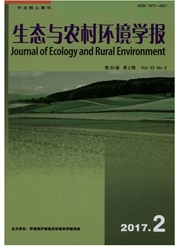

 中文摘要:
中文摘要:
地质封存CO2是当前国际上公认的碳减排的有效措施,可能成为未来全球CO2减排的关键性核心技术,但封存于地下的CO2存在泄漏风险,对陆地生态系统,尤其是近地表陆地生态系统带来潜在威胁。从近地表陆地生态系统的3个重要组成部分(地下水、土壤和植被)出发,概述地下CO2泄漏对近地表陆地生态系统可能产生的影响及过程,总结了当前国内外关于地下CO2泄漏对近地表陆地生态系统主要领域影响的研究进展和不足,并在此基础上,指出未来我国应对地质封存CO2泄漏影响评估研究的重点领域是农田生态系统,重点研究内容包括对地质封存CO2泄漏耐受阈值的界定、CO2泄漏预警体系的构建以及陆地生态系统防灾减灾应对措施体系的提出。
 英文摘要:
英文摘要:
Carbon dioxide capture and storage (CCS) has been recognized as an effective way to mitigate emission of C02 to the atmosphere and may become a critical technology for global CO2 mitigation, however, the risk of CO2 leaking from its geologic storage will pose a potential threat to the terrestrial ecosystem, especially the near-surface terrestrial ecosys- tem. From the aspects of the three major components (ground water, soil and vegetation) of the near-surface terrestrial e- cosystem, a review is presented of the potential impact of the leakage on the ecosystem and its process, and progresses and shortcomings of the researches, abroad and at home, in this field are summarized. On such a basis, it is indicated that the study on impacts of CO2 leakage from its geologic storage should be focused on evaluation of its impacts on farmland eco- systems, determination of threshold of tolerance of the ecosystems to the leakage, construction of an early warning system for CO2 leakage, and proposition of a system of countermeasures for the terrestrial ecosystem to avoid or mitigate disasters CO2 leakage may cause.
 同期刊论文项目
同期刊论文项目
 同项目期刊论文
同项目期刊论文
 期刊信息
期刊信息
